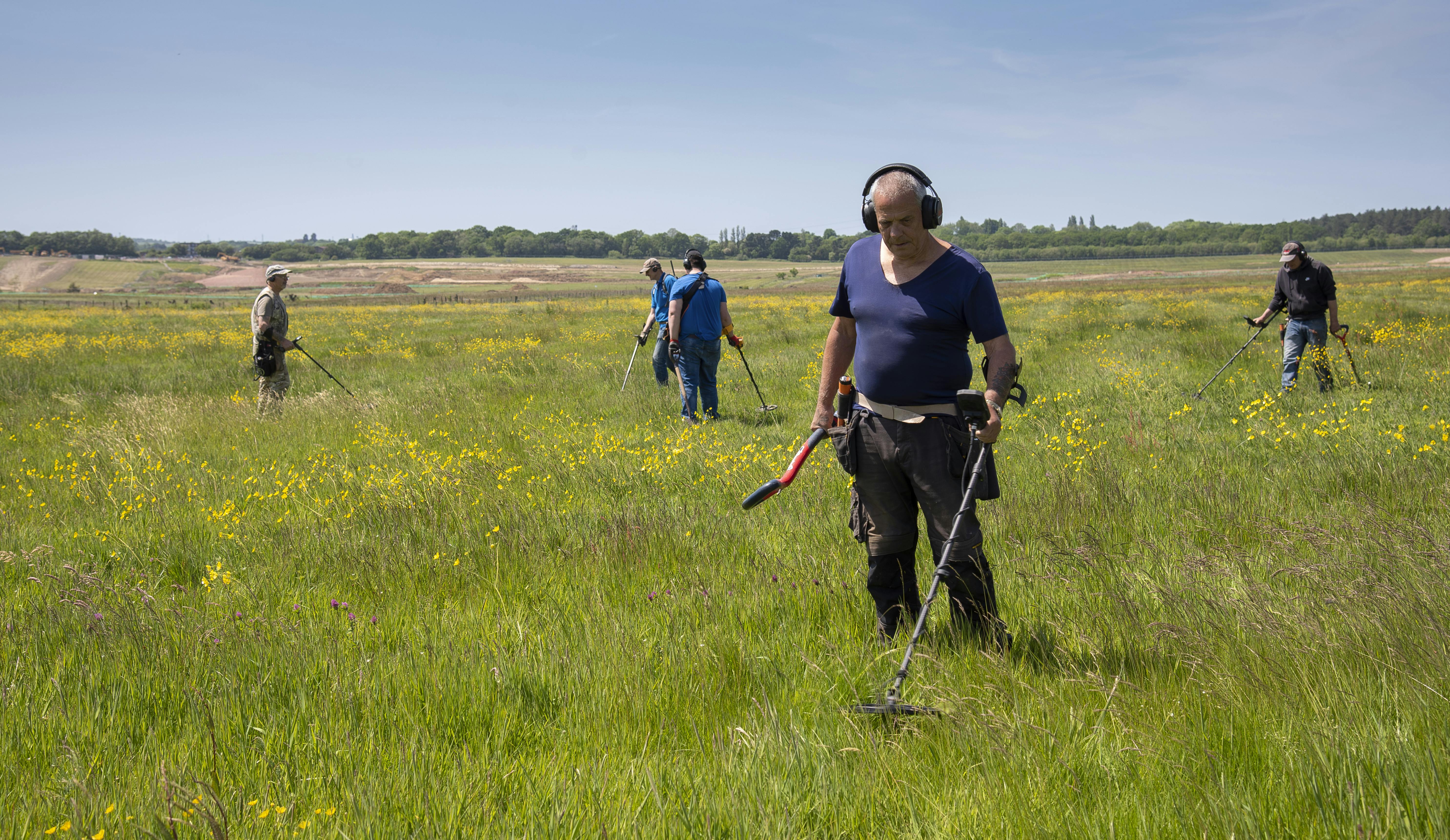Detectorists explore Havant Thicket Reservoir site ahead of construction
Portsmouth Water has welcomed a local group of metal detectorists to its Havant Thicket Reservoir site, ahead of the main excavation works starting.
The Solent Metal Detecting Club were given the chance to explore the site and search for artefacts in line with the project’s commitment to archaeology.
Whilst the site has historically been agricultural, the group unearthed an impressive selection of Georgian coins, cutlery, remnants from military activities and even a small petrol engine for a model aircraft.
This is in addition to the Roman coin which was uncovered in 2022 by a local detectorist.
Neil Peacock, from the Solent Metal Detecting Club, said: “We’re very grateful to Portsmouth Water for giving us the opportunity to explore the site before work starts.
“There was no real settlement here, so we wouldn’t expect to find much. However, what we did find were coins dating back as far as the 17th century. People have farmed this land for many years and all sorts of things would’ve dropped out of people’s pockets, including brooches, and even a small compass.
“We’ve found lots of knives and forks which would indicate animals, particularly pigs were farmed here. Many years ago, households and even schools would have taken their leftovers down to feed them and often cutlery ended up in with the food!
“Interestingly, as we were digging the site, we could see the earth is full of smooth round stones, which indicate a river or body of water used to be here. It’s therefore very fitting that it will soon be home to a major new reservoir!”
David Hopkins, County Archaeologist, said: “Portsmouth Water has made commitments as part of its planning application to ensure the history and archaeology of the site is captured. It is anticipated that investigations will confirm that the landscape was woodland, traditionally used for hunting, with some evidence of early prehistoric camps and perhaps Roman kilns. This recent metal detecting has brought further insights to light. Every object carries a story, of recent farming and of wartime, of casual loss and of discarded rubbish.”
Bob Taylor, Chief Executive Officer for Portsmouth Water, said: “We were delighted to welcome the Solent Metal Detecting Club to our Havant Thicket Reservoir site. We were so impressed with the group’s enthusiasm and knowledge and it was fascinating to see what they uncovered.
“As a company, we are committed to respecting the history and archaeology of the Havant Thicket Reservoir site and will be documenting this carefully ahead of the main works starting.
“We are already working closely with the County Archaeologist and have previously welcomed local group, Friends of Staunton Country Park, to site to observe our excavations.”
